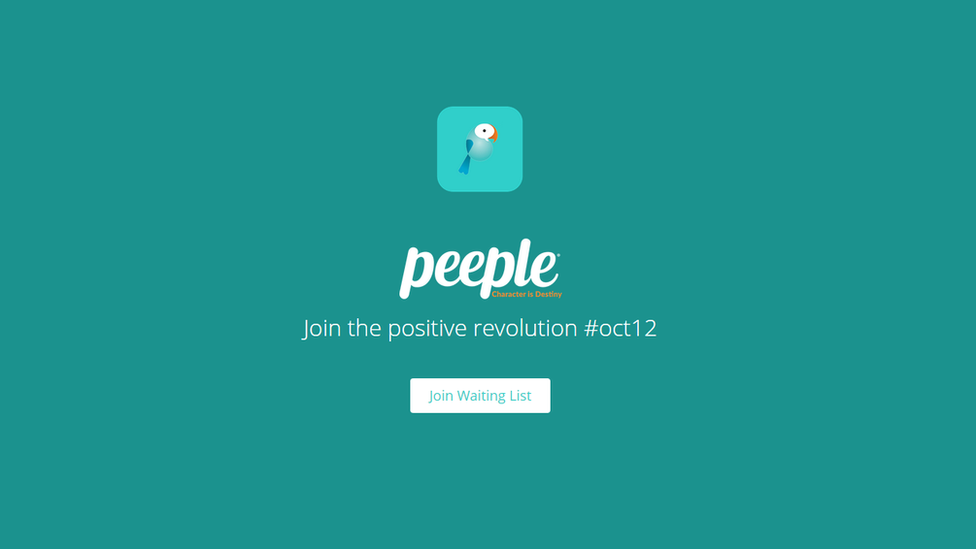Peeple sites 'disappear' from web after backlash over app
- Published

The Peeple website is inaccessible for many, though some have loaded a sparse landing page
The website and social media pages for controversial human-rating app Peeple have been taken offline.
Visitors to the Twitter, external and Facebook page, external for the Peeple app have been met with messages explaining such content is unavailable or that it doesn't exist.
Similarly, the app's website, external returns a "Not Found" error for many users.
The Peeple app sparked a storm of controversy when it was announced last week as a way to rate individuals.
While the official website for the app is inaccessible for many, some users have reported being directed to a landing page that reads: "Join the positive revolution #oct12".
Julia Cordray, one of the founders of the app, told the BBC in an email: "We look forward to October 12, 2015 where we will be taping for an exclusive talk show and expose our concept to the world.
"World's largest positivity app for positive people launching November 2015 on iOS and Android."
However, Ms Cordray did not provide any details about the talk show or explain why the Peeple social media accounts have been disabled.
A hoax?
Over the weekend, some began to speculate that the app, which wasn't due to launch until November, was in fact a hoax.
Myth-busting website Snopes.com, for instance, considered, external the online footprint of both the app and its founders - and the fact that several details released about the service remained curiously vague.
However, Ms Cordray directly denied suggestions that the app was a hoax in a blog published on LinkedIn. , external
She said that she had received death threats and insulting comments since news of Peeple went viral.
She added that a previously announced feature of the app, in which negative comments made about individuals would be posted after a certain time limit, would now no longer be part of it.
"I want the world to be positive and this is how I'm going to inspire it by creating the world's largest positivity app," she wrote.
Outcry 'unsurprising'
Uproar over the app was "unsurprising", according to social media researcher Dr Ansgar Koene at the University of Nottingham.
"The obvious thing is the equating people with objects, with services that are being provided," he told the BBC.
He also criticised the company's management of negative comments on social media.
"If you looked at things like the Facebook page that the CEOs of the company made it was interesting to see how they blatantly just ignored any of the negative messages."
Dr Koene added that, although part of him "hopes" it is a hoax or joke, he would have expected a statement announcing this to have been published by now.
- Published1 October 2015

- Published4 October 2015

- Published19 June 2015
